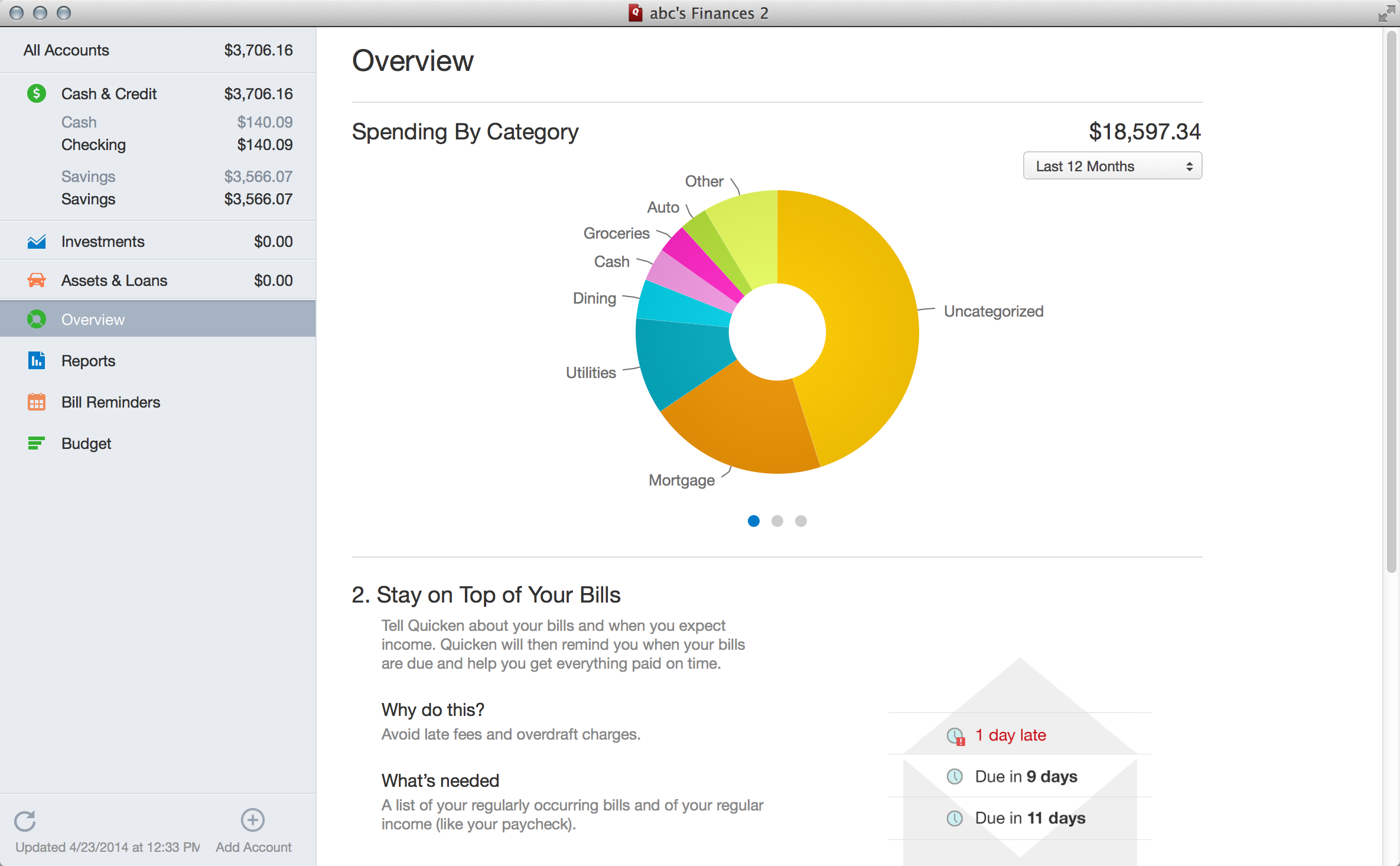

- #QUICKEN FOR MAC VS WEVEST PDF#
- #QUICKEN FOR MAC VS WEVEST MANUAL#
- #QUICKEN FOR MAC VS WEVEST SOFTWARE#
- #QUICKEN FOR MAC VS WEVEST CODE#
Scareware is another common form of harmful code doing the rounds this way. However, instead of installing the software, this routine results in depositing a malicious app such as adware that will embed sponsored links and display ads across the visited web pages. Unlike valid system notifications, these ones will typically include a button to download the latest build of the “enhancement” tool. This type of a malvertising campaign is accompanied by “Missing Plug-in” or “Blocked Plug-in” alerts. To execute this hoax, perpetrators use a potentially unwanted application (PUA) that hijacks the victim’s web browser and either forwards the traffic to sketchy sites or triggers misleading popup warnings. Malware distributors might try to ambush a user by misreporting a bug of that kind. In addition to the obvious legit causes for macOS to block a plug-in, there is a shadier course of action that involves the error messages in question. If the utility spots malicious code, you will need to buy a license to get rid of it. Download Now Learn how ComboCleaner works. This way, you may reduce the cleanup time from hours to minutes. Therefore, it is recommended to download Combo Cleaner and scan your system for these stubborn files. “Blocked Plug-in” error virus may re-infect your Mac multiple times unless you delete all of its fragments, including hidden ones. As a matter of fact, Apple has already done it since Safari 10, but users can still turn on the plug-in if they need it. Moreover, the vendor is rumored to plan on ending support of Flash Player in 2020 and it will be eventually disabled from major web browsers by default. Arbitrary code execution and data theft are among the biggest issues stemming from these imperfections. Although Adobe is releasing patches off and on, computers running it may stay susceptible to cybercriminals’ attacks for months.
#QUICKEN FOR MAC VS WEVEST SOFTWARE#
This software has gained notoriety for being crammed up with vulnerabilities.

Why would Apple pull the plug on a plug-in (pardon the linguistic redundancy)? In the case of Flash, things are fairly clear. The “Blocked Plug-in” error may show up alongside a notification saying that the content requires the latest version of the Flash Player. A common situation involves watching multimedia or playing an in-page game. One more scenario that falls under the same category is when a Mac user goes to a website that relies on Adobe Flash Player to interact with the visitors. Incidentally, this can be a cross-browser issue and hold true for Chrome and Firefox as well. The file preview turns out to be a no-go in this case as the browser displays a black screen with the above-mentioned message in the center.
#QUICKEN FOR MAC VS WEVEST PDF#
For instance, the alert may occur when a user tries to open an email link in Safari leading to a PDF document. Most reports regarding this issue are associated with Adobe software, including Flash Player and Acrobat Reader. An error on Mac saying “ Blocked Plug-in” typically means that the system has prevented a specific plug-in from running. This is an important prerequisite for delivering a proper user experience, but with the caveat that these enhancements largely have a third-party nature and may become a source of security issues.

Plug-ins are intended to make sure a system component, such as a web browser, supports certain features or types of content provided by websites and other modern electronic services. This article explains the rationale behind a blocked plug-in on Mac and provides a workaround for the error, including a way to remove the misbehaving app.
#QUICKEN FOR MAC VS WEVEST MANUAL#


 0 kommentar(er)
0 kommentar(er)
